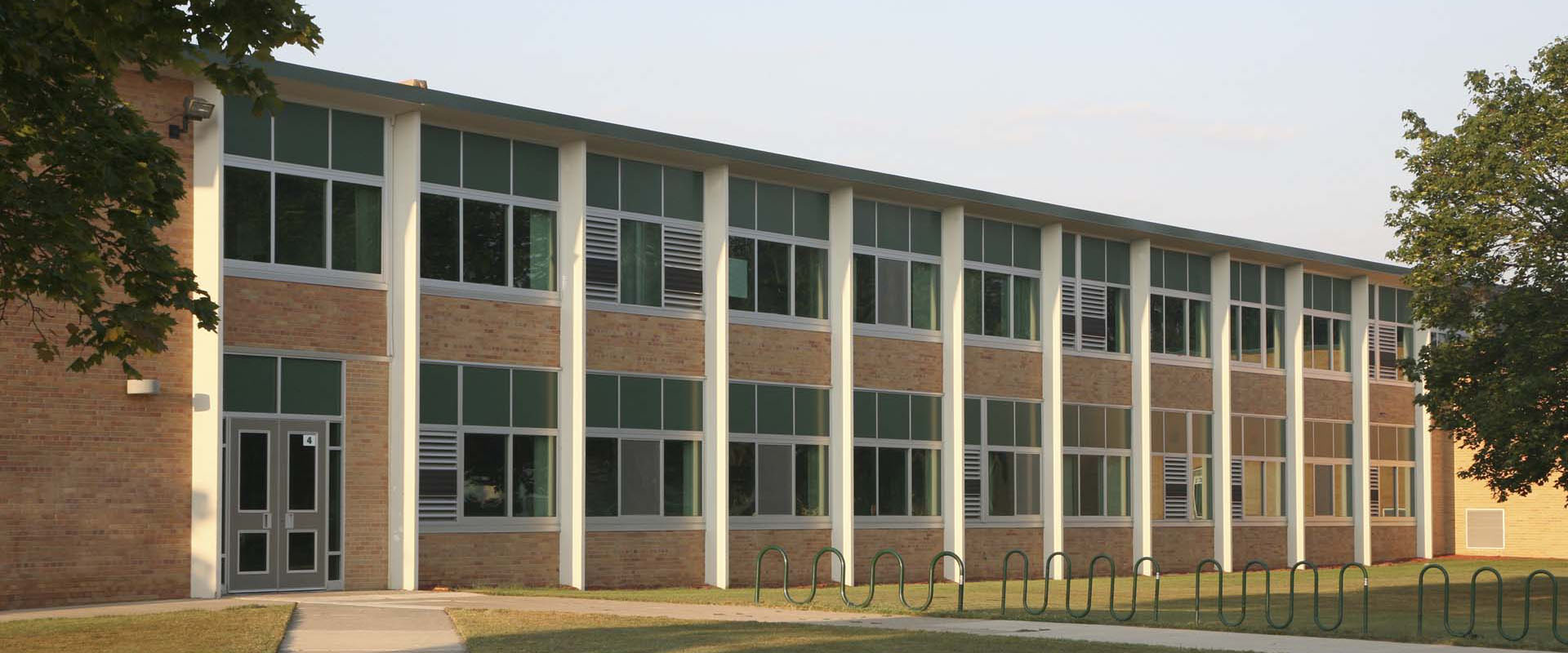Surplus School District Property and the Budget Crisis: New and Proposed Legal Requirements and Opportunities

June 2020
Number 47
The COVID-19 pandemic has created a looming fiscal crisis across California. As local agencies prepare to adopt their fiscal year 2020-21 budgets, some are eyeing the option of selling or leasing surplus property in order to generate funds to ease potential shortfalls. There is a great deal happening in Sacramento currently that may impact that option for better or worse.
School districts must follow specific procedures prior to selling or leasing real property. These procedures and related issues are summarized in Lozano Smith's Surplus Property Checklist. The latest version of the checklist addresses a new legal requirement effective January 1, 2020, regarding declaring property as "exempt surplus land" in order to avoid certain procedural steps that would otherwise be required. (Gov. Code § 54221(b)(1).) The 2020 update to our user friendly checklist is now available here:
http://www.lozanosmith.com/docs/resources/flipbook/Surplus_Checklist/
Limitations on the Expenditure of Proceeds from Sale of Property
The use of proceeds from the sale of property, or a lease with option to purchase, is limited, while lease proceeds with no option to purchase are not subject to expenditure limitations. In the past, this fact, coupled with the desire to preserve property for future use if needed, has often led school districts to lease their surplus property rather than selling. Today, pending legislative efforts growing out of the COVID-19 crisis may give school districts reason to revisit that thinking.
Education Code Section 17462 requires that the proceeds of the sale of surplus property generally must be used for capital outlay or maintenance costs that will not recur within a five-year period. Proceeds from a lease with an option to purchase may be deposited in a restricted fund for routine repairs for up to a five-year period, where they must be used for one-time expenditures. They may not be used for ongoing expenditures, such as salaries and other general operating expenses.
If the district governing board and the State Allocation Board (SAB) have determined that the district will have no anticipated need for additional sites or construction in the next ten years, the proceeds from the sale or lease with option to purchase may be placed into a general fund for one-time expenditures for that ten year period.
Education Code Section 17463 adds another option for the use of funds by school districts with an average daily attendance of less than 10,001 in any fiscal year. Such school districts may deposit interest earned on the proceeds from a sale in that fiscal year of surplus property into the general fund to be expended for any school district purpose, while surrendering State facilities funding for ten years.
Another pitfall to be wary of is that under Section 17462.3 and under SAB regulations, the SAB may require a school district to return State school facilities funding to the State if the school district sells surplus property that was purchased modernized, or improved with that funding, and the following conditions exist:
Legislative Efforts to Relax Expenditure Limitations
Former Education Code Section 17463.7, which was initially enacted as a response to the 2008 financial crisis in an effort to help school districts meet their fiscal challenges, allowed school districts to deposit the proceeds from the sale or lease of surplus property purchased with local funds into their general funds. The proceeds could then be used for any one-time general fund purposes. By its own terms, Section 17463.7 expired on January 1, 2016, and is no longer in effect.
Due to the financial impacts stemming from the COVID-19 pandemic, the Governor's May Revision to the proposed 2020-21 State Budget indicated that flexibility would be provided regarding the expenditure of surplus property sale proceeds. Initial legislative efforts to address the Governor's budget message appear to be centered on reviving Section 17463.7. Assuming that section is revived in whole, in order to take advantage of the increased flexibility, a school district would need to submit documents to the SAB certifying that their sale of real property does not violate the provisions of a local bond act and that the real property is not suitable to meet projected school construction needs for the next 10 years. The school district must also present a plan for expending the proceeds, identifying the source, use of funds, and why the expenditure will not result in ongoing fiscal obligations for the school district. Upon SAB approval, a school district can use the proceeds for the one-time expenditures identified in its spending plan. Section 1700 of Title 2 of the California Code of Regulation defines "one-time expenditures" as "costs paid by the general funds of a school district that are nonrecurring in nature and do not commit the school district to incur costs in the future, and are exclusive of Ongoing Expenditures." Under this regulation, these allowed one-time expenditures can include unfunded retirement benefits, within certain limitations.
The Pandemic's Impact on the Ability to Collect Rent Payments
At the same time that the Legislature is considering ways to loosen restrictions on the use of sale proceeds, school districts are experiencing challenges in collecting rents for existing leases. Many California businesses are experiencing loss of income due to the COVID-19 pandemic shutdown. This not only impacts commercial tenants and their ability to pay rent, but owners who depend on rent payments from their tenants. While school districts that lease property are not required to renegotiate with their tenants, doing so may be a viable option in order to receive some rent payments, rather than none at all.
In response to the struggles being experienced by tenants, the Governor issued two executive orders protecting residential and commercial tenants from eviction for non-payment of rent due to COVID-19. The first order, N-28-20 (March 16, 2020), authorizes local agencies to suspend evictions for both commercial and residential tenants. The second order, N‑37-20 (March 27, 2020), requires the suspension of evictions for residential tenants through May 31, 2020. There is no requirement for suspension or reduction of rent payments.
Local governments are also implementing renter protection. As one example, Santa Clara County has passed and extended ordinances (NS-9.287 and NS-9.288) imposing a temporary moratorium on evictions for non-payment of rent by residential and commercial tenants. Other counties have implemented ordinances that protect only residential tenants.
Recently proposed Senate Bill (SB) 939 would prohibit commercial landlords from evicting their tenants for non-payment of rent due to COVID-19 for a full year. While SB 939 is still being revised, as initially proposed it would eliminate any renter late fees for 12 months after the end of the Governor's declared state of emergency. Any unpaid rent would be due at the end of the month following the date 12 months after the end of the state of emergency, unless the tenant has reached an agreement with the landlord to pay off the balance at a later time. This bill would not reduce or eliminate rent payments.
In order to qualify for the protection of SB 939 as it was initially proposed, commercial tenants would have to meet the requirements of an "eligible COVID-19 impacted commercial tenant" at the time the eviction notice was served. An eligible COVID-19 impacted commercial tenant would mean a commercial tenant that operates primarily in California, that operates commercial real property pursuant to a lease, and that meets one of the following criteria:
At this time, other pending bills regarding tenant protections appear to revolve around protecting residential tenants, as opposed to commercial. We will continue to keep our clients informed of new legislation impacting surplus property.
Takeaways
The COVID-19 emergency, the Governor's orders, the Legislature's activities, and the current rental environment, all arguably tend to tip the scales toward selling, rather than leasing, surplus property. The sale of surplus property could provide the opportunity for school districts to reap proceeds from the sale, rather than wait on tenants for reduced or late rent payments, or no rent payments altogether. The current fiscal crisis may provide an opportunity for lobbying for even greater flexibility in use of sale proceeds. For the time being, school districts with tenants can expect renegotiation efforts and demands regarding leases and rent.
Lozano Smith is a statewide leader on the topic of surplus property. For more information on how your agency can sell or lease surplus property, please contact the authors of this Client News Brief or an attorney at one of our nine offices located statewide. You can also subscribe to our podcast, follow us on Facebook, Twitter and LinkedIn, or download our mobile app.
Number 47
The COVID-19 pandemic has created a looming fiscal crisis across California. As local agencies prepare to adopt their fiscal year 2020-21 budgets, some are eyeing the option of selling or leasing surplus property in order to generate funds to ease potential shortfalls. There is a great deal happening in Sacramento currently that may impact that option for better or worse.
School districts must follow specific procedures prior to selling or leasing real property. These procedures and related issues are summarized in Lozano Smith's Surplus Property Checklist. The latest version of the checklist addresses a new legal requirement effective January 1, 2020, regarding declaring property as "exempt surplus land" in order to avoid certain procedural steps that would otherwise be required. (Gov. Code § 54221(b)(1).) The 2020 update to our user friendly checklist is now available here:
http://www.lozanosmith.com/docs/resources/flipbook/Surplus_Checklist/
Limitations on the Expenditure of Proceeds from Sale of Property
The use of proceeds from the sale of property, or a lease with option to purchase, is limited, while lease proceeds with no option to purchase are not subject to expenditure limitations. In the past, this fact, coupled with the desire to preserve property for future use if needed, has often led school districts to lease their surplus property rather than selling. Today, pending legislative efforts growing out of the COVID-19 crisis may give school districts reason to revisit that thinking.
Education Code Section 17462 requires that the proceeds of the sale of surplus property generally must be used for capital outlay or maintenance costs that will not recur within a five-year period. Proceeds from a lease with an option to purchase may be deposited in a restricted fund for routine repairs for up to a five-year period, where they must be used for one-time expenditures. They may not be used for ongoing expenditures, such as salaries and other general operating expenses.
If the district governing board and the State Allocation Board (SAB) have determined that the district will have no anticipated need for additional sites or construction in the next ten years, the proceeds from the sale or lease with option to purchase may be placed into a general fund for one-time expenditures for that ten year period.
Education Code Section 17463 adds another option for the use of funds by school districts with an average daily attendance of less than 10,001 in any fiscal year. Such school districts may deposit interest earned on the proceeds from a sale in that fiscal year of surplus property into the general fund to be expended for any school district purpose, while surrendering State facilities funding for ten years.
Another pitfall to be wary of is that under Section 17462.3 and under SAB regulations, the SAB may require a school district to return State school facilities funding to the State if the school district sells surplus property that was purchased modernized, or improved with that funding, and the following conditions exist:
- The property is not sold to a charter school, another school district, a county office of education, or any agency that will use the property exclusively for the delivery of child care and development services;
- The proceeds from the sale will not be used for capital outlay; and
- The property was purchased, or the improvements were constructed or modernized on the property, within 10 years before the property is sold.
Legislative Efforts to Relax Expenditure Limitations
Former Education Code Section 17463.7, which was initially enacted as a response to the 2008 financial crisis in an effort to help school districts meet their fiscal challenges, allowed school districts to deposit the proceeds from the sale or lease of surplus property purchased with local funds into their general funds. The proceeds could then be used for any one-time general fund purposes. By its own terms, Section 17463.7 expired on January 1, 2016, and is no longer in effect.
Due to the financial impacts stemming from the COVID-19 pandemic, the Governor's May Revision to the proposed 2020-21 State Budget indicated that flexibility would be provided regarding the expenditure of surplus property sale proceeds. Initial legislative efforts to address the Governor's budget message appear to be centered on reviving Section 17463.7. Assuming that section is revived in whole, in order to take advantage of the increased flexibility, a school district would need to submit documents to the SAB certifying that their sale of real property does not violate the provisions of a local bond act and that the real property is not suitable to meet projected school construction needs for the next 10 years. The school district must also present a plan for expending the proceeds, identifying the source, use of funds, and why the expenditure will not result in ongoing fiscal obligations for the school district. Upon SAB approval, a school district can use the proceeds for the one-time expenditures identified in its spending plan. Section 1700 of Title 2 of the California Code of Regulation defines "one-time expenditures" as "costs paid by the general funds of a school district that are nonrecurring in nature and do not commit the school district to incur costs in the future, and are exclusive of Ongoing Expenditures." Under this regulation, these allowed one-time expenditures can include unfunded retirement benefits, within certain limitations.
The Pandemic's Impact on the Ability to Collect Rent Payments
At the same time that the Legislature is considering ways to loosen restrictions on the use of sale proceeds, school districts are experiencing challenges in collecting rents for existing leases. Many California businesses are experiencing loss of income due to the COVID-19 pandemic shutdown. This not only impacts commercial tenants and their ability to pay rent, but owners who depend on rent payments from their tenants. While school districts that lease property are not required to renegotiate with their tenants, doing so may be a viable option in order to receive some rent payments, rather than none at all.
In response to the struggles being experienced by tenants, the Governor issued two executive orders protecting residential and commercial tenants from eviction for non-payment of rent due to COVID-19. The first order, N-28-20 (March 16, 2020), authorizes local agencies to suspend evictions for both commercial and residential tenants. The second order, N‑37-20 (March 27, 2020), requires the suspension of evictions for residential tenants through May 31, 2020. There is no requirement for suspension or reduction of rent payments.
Local governments are also implementing renter protection. As one example, Santa Clara County has passed and extended ordinances (NS-9.287 and NS-9.288) imposing a temporary moratorium on evictions for non-payment of rent by residential and commercial tenants. Other counties have implemented ordinances that protect only residential tenants.
Recently proposed Senate Bill (SB) 939 would prohibit commercial landlords from evicting their tenants for non-payment of rent due to COVID-19 for a full year. While SB 939 is still being revised, as initially proposed it would eliminate any renter late fees for 12 months after the end of the Governor's declared state of emergency. Any unpaid rent would be due at the end of the month following the date 12 months after the end of the state of emergency, unless the tenant has reached an agreement with the landlord to pay off the balance at a later time. This bill would not reduce or eliminate rent payments.
In order to qualify for the protection of SB 939 as it was initially proposed, commercial tenants would have to meet the requirements of an "eligible COVID-19 impacted commercial tenant" at the time the eviction notice was served. An eligible COVID-19 impacted commercial tenant would mean a commercial tenant that operates primarily in California, that operates commercial real property pursuant to a lease, and that meets one of the following criteria:
- It is a commercial tenant that has experienced a decline of 20 percent or more in average monthly revenue over the two most recent calendar months when compared to one or both of the following
- Its average monthly revenue for the two calendar months before a state or local government shelter-in-place order took effect;
- Its average monthly revenue for the same calendar months in 2019;
- It is a commercial tenant that was prevented from opening or required to delay opening its business because of the state of emergency; or,
- It is a commercial tenant that has suffered a decline of 15 percent or more in capacity due to compliance with an official public health order or occupational health and safety guideline for preventing the spread of coronavirus.
At this time, other pending bills regarding tenant protections appear to revolve around protecting residential tenants, as opposed to commercial. We will continue to keep our clients informed of new legislation impacting surplus property.
Takeaways
The COVID-19 emergency, the Governor's orders, the Legislature's activities, and the current rental environment, all arguably tend to tip the scales toward selling, rather than leasing, surplus property. The sale of surplus property could provide the opportunity for school districts to reap proceeds from the sale, rather than wait on tenants for reduced or late rent payments, or no rent payments altogether. The current fiscal crisis may provide an opportunity for lobbying for even greater flexibility in use of sale proceeds. For the time being, school districts with tenants can expect renegotiation efforts and demands regarding leases and rent.
Lozano Smith is a statewide leader on the topic of surplus property. For more information on how your agency can sell or lease surplus property, please contact the authors of this Client News Brief or an attorney at one of our nine offices located statewide. You can also subscribe to our podcast, follow us on Facebook, Twitter and LinkedIn, or download our mobile app.
Coming Soon
Watch for Lozano Smith's upcoming webcast on current surplus property issues, featuring an interview with the authors of this Client News Brief.Disclaimer: As the information contained herein is necessarily general, its application to a particular set of facts and circumstances may vary. For this reason, this News Brief does not constitute legal advice. We recommend that you consult with your counsel prior to acting on the information contained herein.







